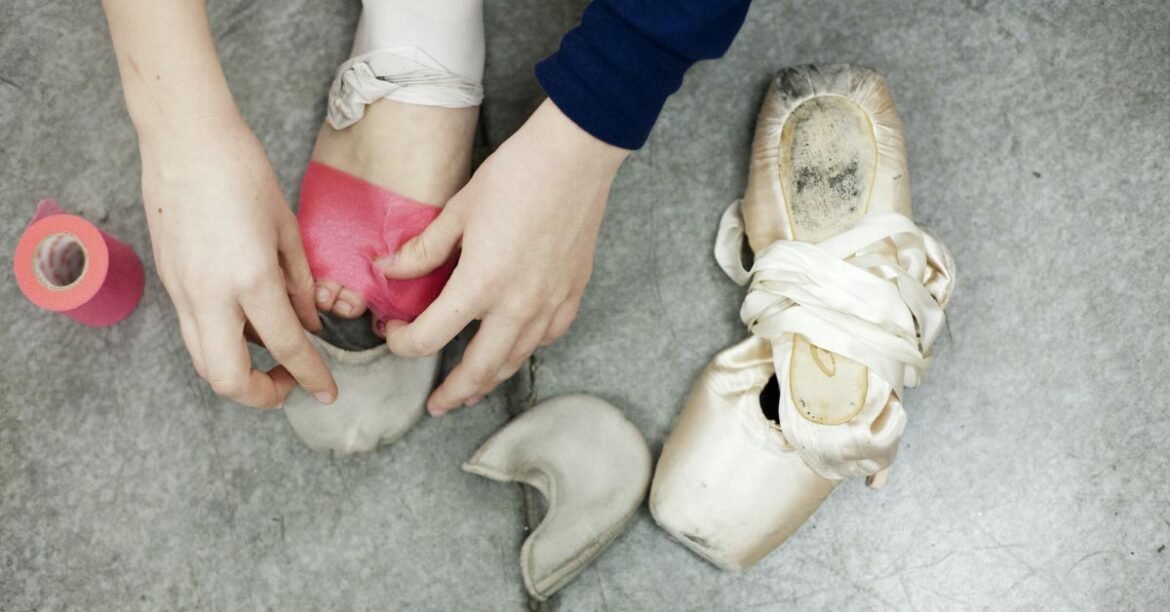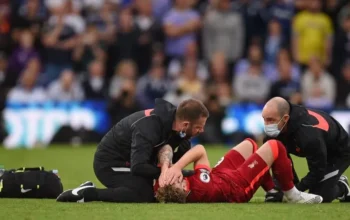Bunions are bony bumps that form on the joint at the base of the big toe, causing it to angle towards the second toe. This deformity can lead to pain, discomfort, and difficulty wearing certain shoes. In Liverpool, bunion treatment is vital, given the impact on daily activities and overall foot health. Addressing bunions early can prevent them from worsening and reduce the need for more invasive treatments. This guide will explore various bunion treatment options available in Liverpool, including non-surgical and surgical solutions, helping you make informed decisions about your foot health.
Understanding Bunions
What are Bunions?
Bunions are deformities of the joint at the base of the big toe, characterized by a noticeable bump on the side of the foot. This bump is a result of the big toe pushing against the second toe, causing the joint to protrude outward. Bunions can develop gradually and may become more prominent over time. They can cause pain, swelling, and inflammation, making walking and wearing shoes uncomfortable.
Causes and Risk Factors
Bunions can develop due to various factors, including genetics, foot mechanics, and certain medical conditions. Hereditary factors play a significant role, as bunions often run in families. Additionally, conditions like arthritis and neuromuscular disorders can increase the risk of developing bunions. High-heeled shoes and tight footwear that put pressure on the toes can also contribute to bunion formation. It’s essential to understand these risk factors to take preventive measures and seek timely treatment.
Symptoms Associated with Bunions
Common symptoms of bunions include pain, swelling, redness, and tenderness around the affected joint. As the bunion grows, it may cause the big toe to angle inward, leading to calluses or corns on the adjacent toes. Limited range of motion in the big toe and difficulty finding comfortable footwear are also typical symptoms. If you experience these signs, it’s crucial to consult a specialist in Liverpool for a thorough diagnosis and personalized treatment plan.
Diagnosis of Bunions
How Bunions are Diagnosed by Healthcare Professionals
Diagnosing bunions typically involves a physical examination by a healthcare professional, who will assess the size, shape, and pain level of the bunion. X-rays or other imaging tests may be used to determine the severity of the deformity and check for any underlying joint damage. A detailed medical history is also taken to understand the patient’s symptoms, lifestyle, and footwear habits. In Liverpool, specialists use advanced diagnostic tools to ensure accurate diagnosis and effective treatment planning.
Importance of Early Detection in Liverpool Clinics
Early detection of bunions is crucial in preventing their progression and minimizing pain and discomfort. Liverpool clinics offer comprehensive assessments to identify bunions at their early stages. Early intervention can include changes in footwear, the use of orthotics, or simple home remedies, reducing the likelihood of requiring surgical treatment. By recognizing the signs of bunions early, you can take proactive steps to manage the condition effectively.
Non-Surgical Treatment Options
Lifestyle Changes and Home Remedies
Lifestyle changes can significantly alleviate bunion pain and prevent worsening. Wearing comfortable, well-fitting shoes with a wide toe box can reduce pressure on the bunion. Applying ice packs to the affected area can help reduce swelling and inflammation. Additionally, over-the-counter pain medications like ibuprofen can manage pain and discomfort. Elevating the foot and using bunion pads or cushions can also provide relief. Regularly stretching and strengthening foot muscles can improve overall foot health.
Orthotic Devices and Supportive Footwear Options
Orthotic devices, such as custom-made shoe inserts, can provide essential support and cushioning, reducing pressure on the bunion. Liverpool podiatrists can create orthotics tailored to your specific needs, promoting proper foot alignment and easing pain. Supportive footwear with adequate arch support, cushioning, and a roomy toe box can prevent the bunion from worsening. Liverpool’s foot care specialists can recommend suitable footwear brands and orthotic options to enhance comfort and support.
Surgical Treatment for Bunions
Overview of Surgical Procedures Available in Liverpool
When non-surgical Bunion treatment Liverpool fail to relieve bunion pain, surgery may be necessary. Liverpool offers various surgical options, including bunionectomy, which involves removing the bony bump and realigning the toe. Other procedures may include osteotomy, where the bone is cut and repositioned, and arthrodesis, which fuses the joint to correct deformity. The choice of procedure depends on the severity of the bunion and the patient’s overall health. Liverpool’s experienced surgeons use advanced techniques to ensure effective outcomes and quicker recovery times.
Risks and Benefits Associated with Bunion Surgery
Like any surgery, bunion surgery carries risks, including infection, nerve damage, and recurrence of the bunion. However, the benefits often outweigh the risks, particularly for severe cases causing significant pain and mobility issues. Bunion surgery can restore normal foot function, relieve pain, and improve the appearance of the foot. Liverpool’s surgeons provide thorough consultations, discussing potential risks, benefits, and expected outcomes, helping patients make informed decisions about their treatment.
Post-Treatment Care and Recovery
Rehabilitation Exercises and Physical Therapy
Post-surgery recovery involves specific rehabilitation exercises and physical therapy to restore strength, flexibility, and mobility. Liverpool’s rehabilitation specialists design customized exercise programs to aid in the healing process, reduce stiffness, and prevent complications. These exercises may include toe stretching, gentle foot strengthening, and balance training. Following the prescribed rehabilitation plan is crucial for a successful recovery and returning to normal activities.
Expected Recovery Timeline and Follow-Up Appointments
The recovery timeline after bunion surgery varies, but most patients can expect to resume light activities within a few weeks and more strenuous activities in 6 to 8 weeks. Liverpool surgeons schedule regular follow-up appointments to monitor healing progress, remove stitches, and assess the foot’s alignment. Adhering to post-operative care instructions, including rest, elevation, and proper wound care, is essential for a smooth recovery.
Lifestyle Tips to Manage Bunions
Preventive Measures to Avoid Bunion Recurrence
Preventing bunion recurrence involves maintaining healthy foot habits and avoiding risk factors. Wearing comfortable, well-fitted shoes with adequate support and a wide toe box is crucial. Regularly stretching and strengthening foot muscles can improve foot function and reduce stress on the bunion. Liverpool’s foot care specialists can provide personalized advice on footwear and exercises to help maintain foot health and prevent bunions from returning.
Foot Care Techniques Recommended by Specialists in Liverpool
Liverpool’s foot care experts recommend daily foot care practices, such as washing and drying feet thoroughly, trimming toenails straight across, and applying moisturizer to prevent dryness and cracking. Using bunion pads or spacers can protect the bunion from friction and pressure. Regular check-ups with a podiatrist can help monitor foot health and catch any issues early, ensuring long-term comfort and mobility.
Conclusion:
Bunion treatment in Liverpool offers a range of options, from non-surgical methods to advanced surgical procedures. Understanding the causes, symptoms, and treatment choices can empower you to make informed decisions about your foot health. Early diagnosis, timely intervention, and proper post-treatment care are key to managing bunions effectively and maintaining an active, pain-free lifestyle. If you’re experiencing bunion pain or discomfort, consulting a specialist in Liverpool can provide the support and treatment you need.




